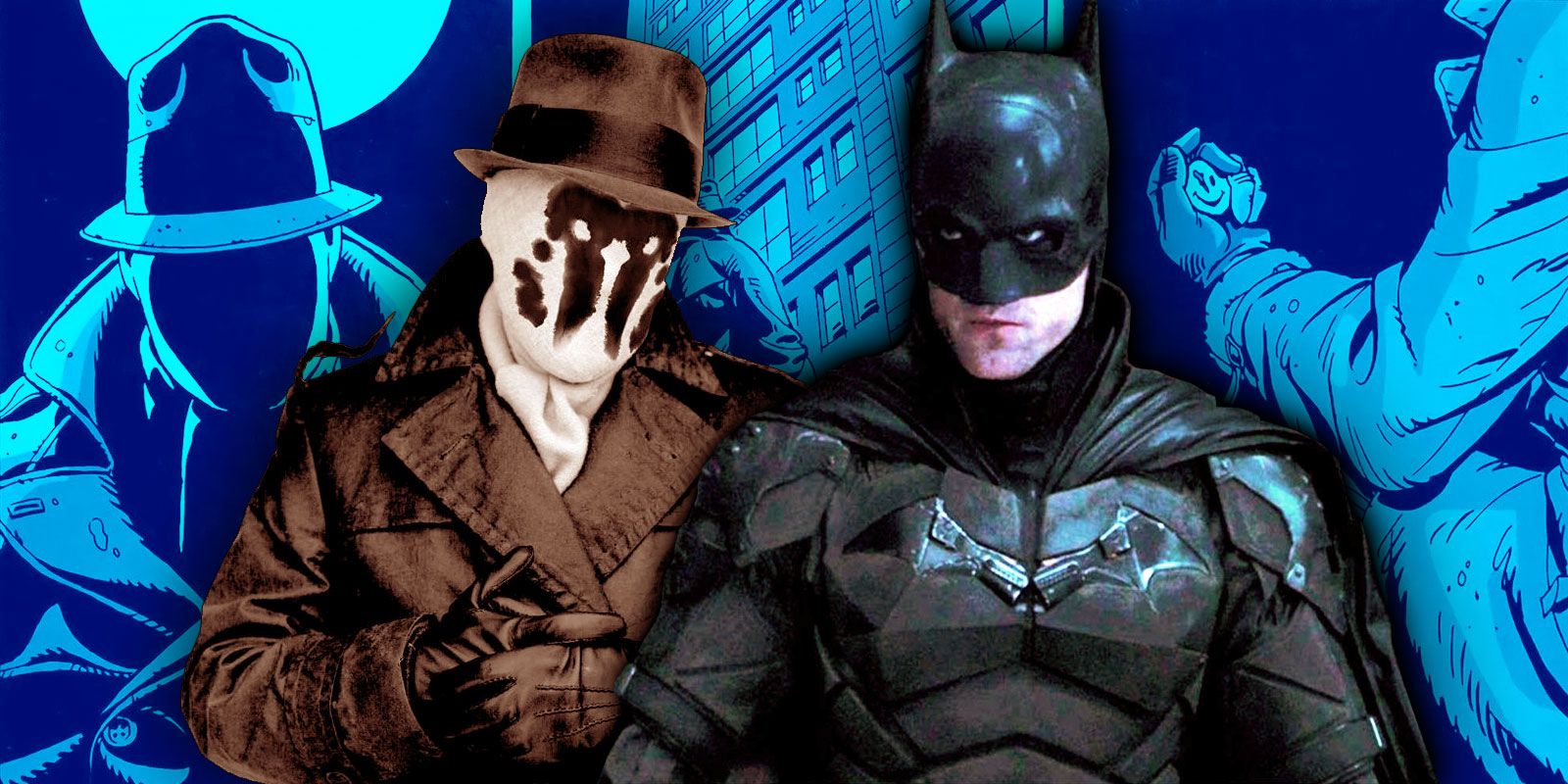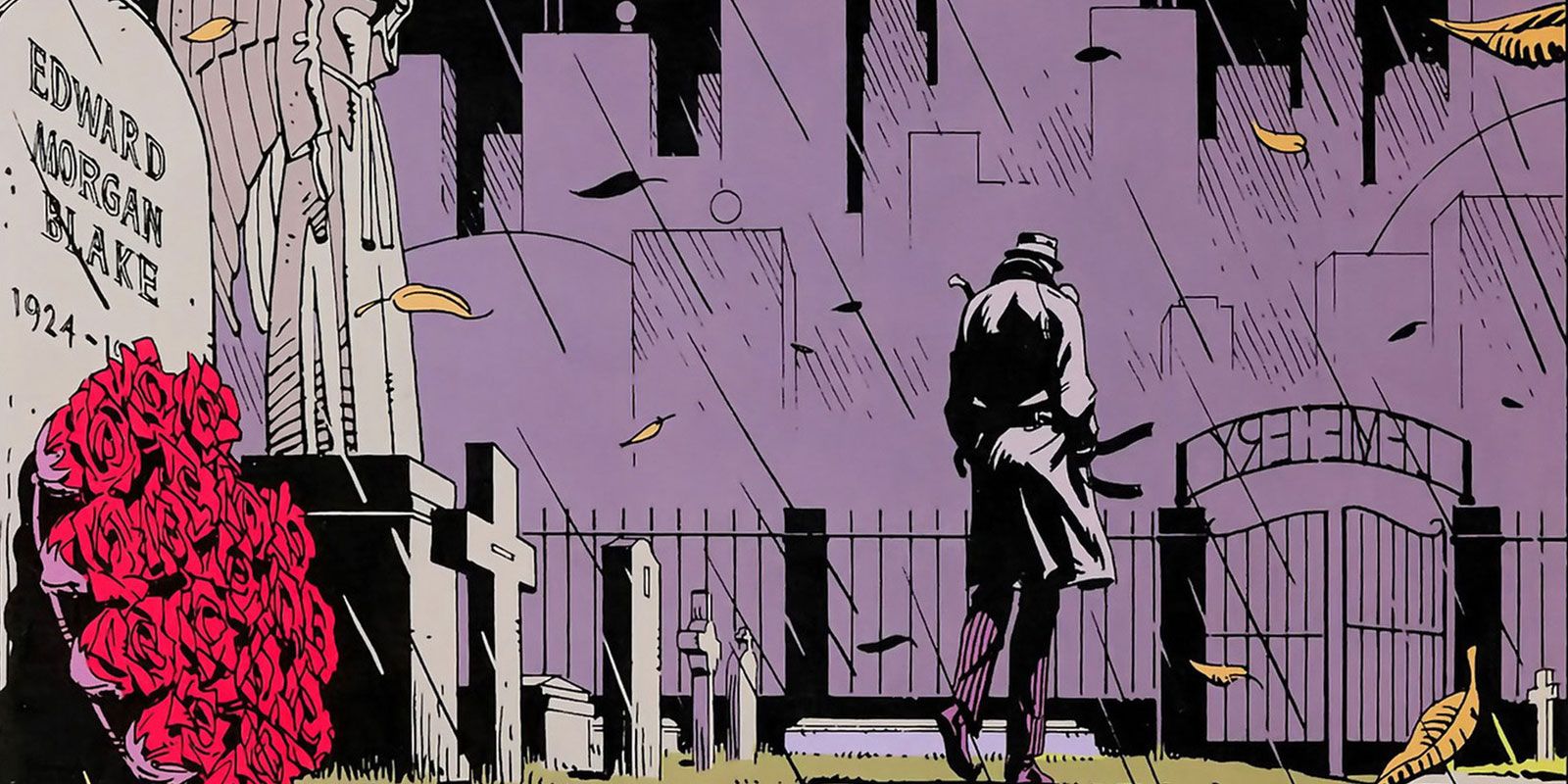Audiences and critics are largely in agreement that The Batman is the most comic-accurate Batman movie ever made and, as a result, the character of Rorschach in Watchmen is a far better deconstruction of this Batman than the DCEU’s Batman (the first of the now three Batmen in recent movies). Zack Snyder was behind the 2009 Watchmen movie adaptation and attempted to bring the same superhero deconstruction to the DCEU Batman in Batman V Superman: Dawn of Justice. Despite this, The Batman finally gives a movie version of the Caped Crusader which shows the character archetype on which Rorschach was based.
Watchmen was originally a limited DC comics series, written by Alan Moore and first published in 1986 and 1987. As well as playing on the anxieties induced by the final years of the Cold War, Watchmen was intended to be a satirical deconstruction of the entire superhero concept – in other words, it takes a close look at the meanings behind superhero stories and picks them apart to find their eccentricities and contradictions. The result is a story about god-like beings and antisocial vigilantes who’ve become totally removed from the world they’re supposedly protecting. Snyder’s Watchmen adaptation is somewhat divisive among fans of the comics, but it still manages to reflect most of these basic ideas.
The Batman begins with grim shots of Gotham city streets and a narration monologue from Batman himself. The style is immediately reminiscent of Rorschach's narration which peppers Snyder’s Watchmen. As Snyder took this part of the character directly from the comic source material, this is not by chance. Rorschach was intentionally a caricature of comic book vigilante detective heroes, showing several traits which are deconstructive of Batman. However, the monologuing hard-boiled detective origins of Batman have largely been overlooked in his movie incarnations, being nearly absent or otherwise unrecognizable in the DCEU’s version of Batman. Conversely, the Bruce Wayne who appears in The Batman, taken back to his comic roots, has a lot in common with Rorschach, from his persistent style of investigation to his violent and antisocial tendencies. The Batman returns Batman to his core characteristics in many ways, including his aversion to guns, his no kill rule, and his detective work. However, his initial detachment, violence, and claim to the identity of vengeance echo Rorschach, who ultimately cares about no one but himself. Because of this, it’s easy to see how, without the character arc he goes through in The Batman, this Bruce Wayne could have easily ended up as much the same kind of character as Rorschach.
Snyder’s Watchmen isn’t a bad adaptation, but The Batman highlights how Watchmen's critique of Batman and his ilk was misunderstood by Snyder when developing the Batman for Batman v Superman: Dawn of Justic and that picks an interesting hole in recent superhero movie movies. Watchmen is not really a superhero movie itself. Quite the opposite, in fact, it's supposed to present a way that the superhero mythos could be horrifying when presented in the wrong way. More importantly, it shows how superheroes who become too far removed from the world they’re protecting could end up thinking nothing of human casualties. The characters in Watchmen are not heroes. Presenting real heroes with the same level of detachment as Watchmen characters robs them of their heroism.
This loss of heroism has caused a wider problem in that a lot of recent superhero movies have been unironically moving in this direction, starting to become mirrors of their own deconstructions. It’s a major criticism of DCEU movies like Zack Snyder's Man Of Steel, but Marvel movies aren’t immune to this influence either. Many of the later MCU movies have begun to place more emphasis on defeating opponents than they do on rescuing innocent people. It’s even played as a joke in Spider-Man: Homecoming that Peter Parker spends his time helping everyday people in New York instead of doing “real” superhero work. Similarly in the DCEU movies, particularly the early ones, characters like Batman appear to have become deconstructions of themselves. The Batman's renewed focus on the heroism of acts of kindness rather than violence should serve as a reminder to the makers of other superhero movies and TV shows, to keep in mind the purpose of these characters and not accidentally turn them into uncaring demigods. As far as actual superhero movies are concerned, Watchmen should remain a superhero deconstruction to be wary of rather than an example to follow.


